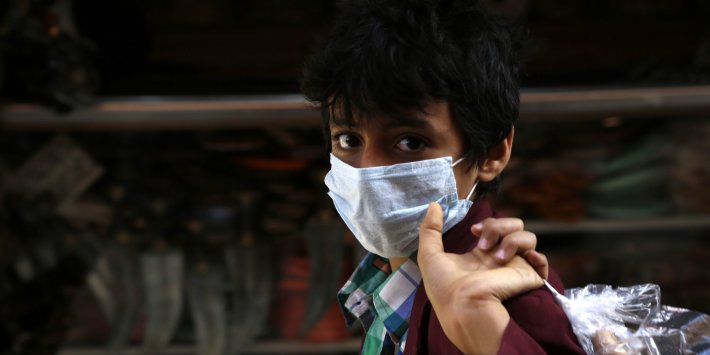Authorities will have to avert Uk assist cuts from pushing the world’s most susceptible into poverty and food stuff insecurity

We listened to how 14 million Yemenis did not even know where their future meal is coming from, writes Sarah Champion MP. | PA Visuals

4 min read

Addressing the secondary impacts of Covid are just as crucial as halting the virus by itself. Authorities must outline how we can make sure the world’s most vulnerable are not left powering.
The Intercontinental Enhancement Committee has had a chaotic week.
On Tuesday, we posted our most recent report thinking of the secondary impacts of the Covid-19 pandemic, which threaten the advancement progress and humanitarian gains of new a long time. We then had a well timed evidence session with the Foreign Secretary, specially presented the hastily printed allocations of assist spending for each Government department, demonstrating significant cuts in comparison to prior a long time.
In the framework of the UN Sustainable Progress Targets, remarkable development development has been made from healthcare to economic advancement, education to gender equality.
But our Committee fears the secondary impacts of coronavirus are possible to be the undoing of these enhancements as new gains are swamped by deferred want, postponed tasks and interrupted programmes.
All through the inquiry we read that health care resources becoming re-allotted to the covid-19 fight and hospitals are at breaking place. We read of popular disruption to regime immunisations: at least 80 million youngsters underneath the age of one particular risk lacking out on vaccines for diseases these as measles, polio and diphtheria. In spite of the large progress made in preventing HIV/AIDS, we listened to that 11.5 million individuals had anti-retroviral solutions disrupted.
It turned very obvious that when confronted with a pandemic on the scale of Covid-19, health care solutions have been unable to cope. Suspending schedule immunisations, disrupting lifetime-conserving companies signifies a ticking timebomb in producing international locations. A resilient, international healthcare approach that can adapt to these issues is urgently necessary.

Specified the possibility of these situations setting back humanitarian progress, it is critical that a in depth assist method is developed

Meanwhile, with countrywide economies about the entire world using a significant hit with successive lockdowns, establishing nations with fragile economies are emotion it most. Many governments are incurring astronomical credit card debt. While bodies these as the IMF are suspending financial debt repayments, my Committee is asking the federal government why we can not take into account cancelling some of this load for the poorest nations, not least as credit card debt a ripple impact on how a authorities money its essential social services and healthcare.
What struck me during our inquiry was the problems of mothers and fathers about how they will feed their families. Unemployment is rocketing and source chains in agriculture are dislocated leaving produce in quick offer. Oxfam told us that folks expected to die from hunger right before Covid, and the UN predicts 132 million additional persons could suffer from chronic food insecurity in 2020. We read how 14 million Yemenis did not even know where by their subsequent food is coming from.
Irrespective of a worldwide pandemic, and rich nations justifying aid cuts due to having difficulties financial outlooks, we must not tolerate a globe where so several are still left to go hungry.
We are also witnessing a shadow pandemic with coronavirus – the disproportionate impacts on women and women.
Girls are really sadly significantly less likely to return to instruction following faculty closures, with a deficiency of funds in homes main to moms and dads prioritising sending sons back again to payment-paying out educational institutions alternatively than girls. As a result, several girls will be stuck at household. This is likely very perilous, with estimates suggesting that there could be an further two million circumstances of feminine genital mutilation, an supplemental 13 million child marriages by 2030 and an maximize in child trafficking.
We are not able to go back to square one particular on gender equality. The federal government have to commit to embedding gender equality within all its programmes and publish yearly assessments of assist funded programmes with the info to display it is on track.
In the course of our evidence session, the Foreign Secretary acknowledged the secondary impacts of coronavirus will be critical. Given the chance of these scenarios environment back humanitarian progress, it is vital that a comprehensive assist method is designed collaboratively, consulted on and published. Specifically with the reduction in ODA down to .5% of GNI, it is critical that the federal government outlines how we can make sure the world’s most vulnerable are not still left powering.
My Committee will be delving deeper into these cuts and what they signify, significantly for the duration of a world wide pandemic. The have to have to adapt to growing secondary hazards – that are trying to keep some of the world’s most susceptible folks hungry all day and in panic all night time – are just as essential as halting transmission of the virus itself.
Sarah Champion is the Labour MP for Rotherham and chair of the Worldwide Advancement Committee.








